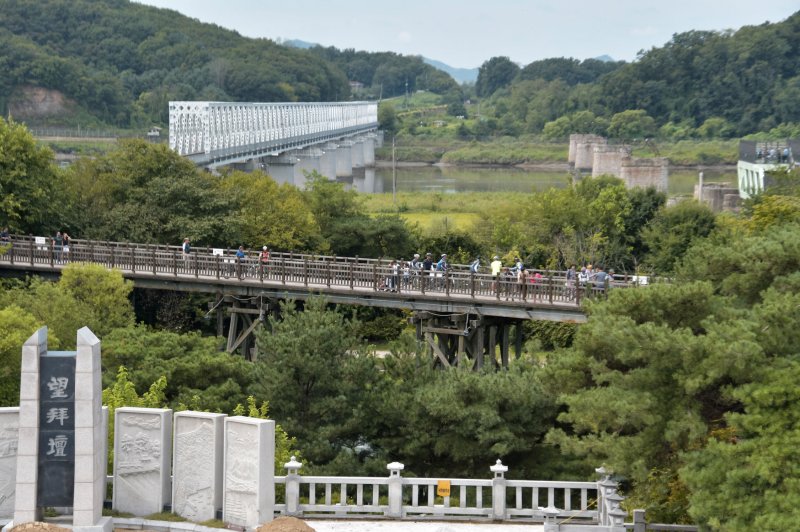Tourists look toward North Korea at the Imjingak Pavilion in Paju, South Korea. North Korea has struggled with deforestation in the past but is calling for greater awareness of the environment. File Photo by Keizo Mori/UPI |
License Photo
May 22 (UPI) -- North Korea highlighted biological diversity and the environment on Wednesday, the International Day for Biological Diversity, while tying environmental protection to national pride.
Korean Workers' Party newspaper Rodong Sinmun reported Wednesday the regime's institute on biodiversity at the State Academy of Sciences said the environment is critical for the North Korean nation and its future.
"Anyone who becomes self-aware about the importance of protecting biodiversity, not only for themselves but also for their country and future generations, will be able to spread the light of a more beautiful and livable people's paradise," said Yun Chol Nam, director of the biodiversity institute.
Yun also said the international day of commemoration is to "provide people with knowledge of the role biodiversity plays in solving issues with food and health."
Biodiversity Day also builds awareness of the need to fend off climate change, recover the ecosystem and alleviate poverty, Yun said.
The North Korean official added different crop and livestock species have disappeared in the "past 100 years" and overfishing has had a "negative impact on the diversity of marine life."
The lack of diversity of foods consumed has led to malnutrition and diabetes around the world, Yun said.
Climate change has had some impact on North Korean agriculture; Pyongyang recently said the country is experiencing "extreme drought" and is seeking assistance.
In South Korea, the government has pledged to expand the study of ecology and biodiversity in the Korean demilitarized zone in order to preserve wildlife in the DMZ.
The policy is being pursued after Seoul's ministry of environment recently reported the sighting of an endangered Asiatic black bear in the off-limits area, according to CNN.
The bear was designated an endangered animal in 1998, according to the report.















